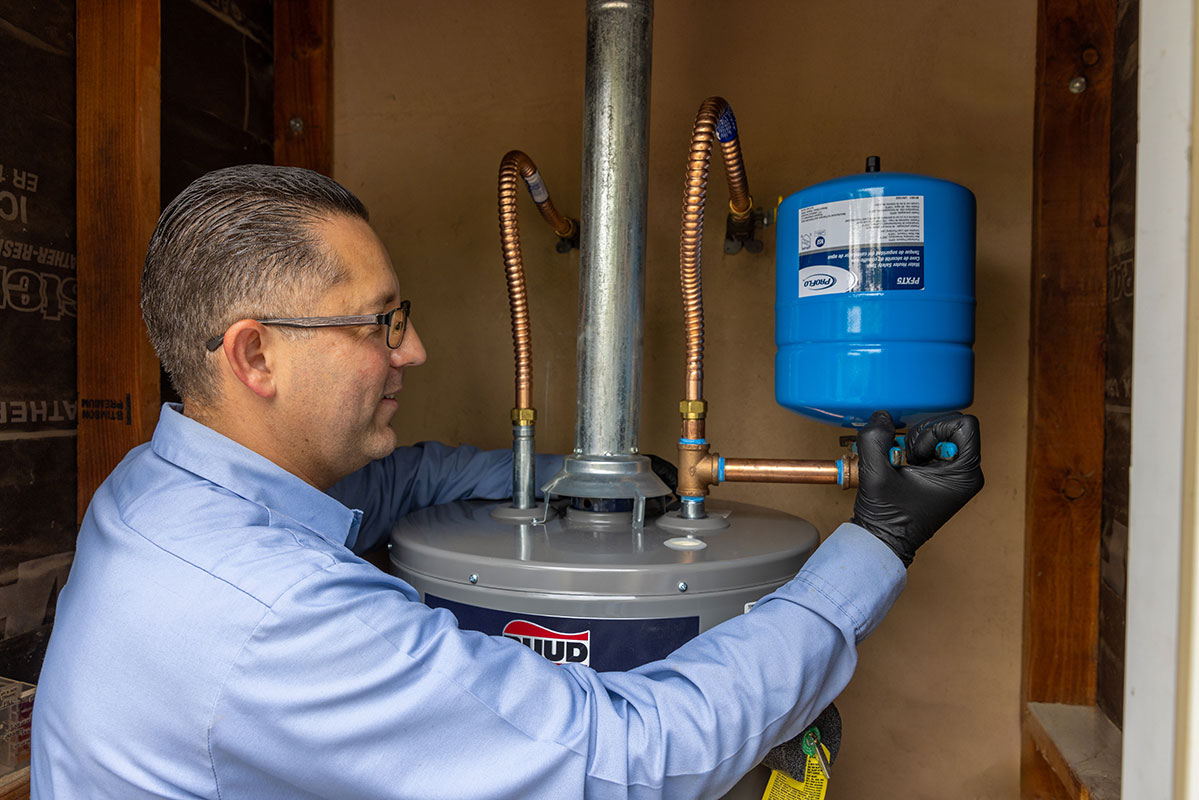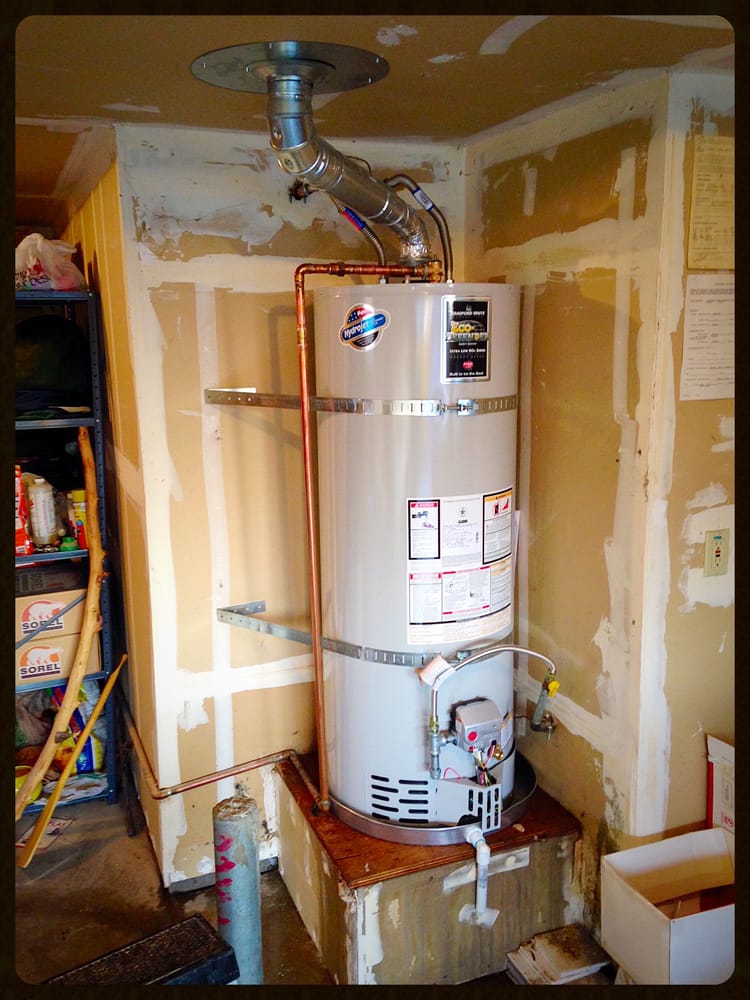Top-Rated Plumber Denton Offering Quality Plumbing Services You Can Trust
Top-Rated Plumber Denton Offering Quality Plumbing Services You Can Trust
Blog Article
Complete Guide to Water HeaterSetup and Substitute
Understanding the complexities of water heating system installation and substitute is vital for homeowners seeking to guarantee effectiveness and reliability in their hot water supply. From picking the ideal kind and dimension to performing a smooth installment process, a number of elements should be taken into consideration to prevent common challenges.
Kinds Of Hot Water Heater
When taking into consideration hot water heater installment and replacement, it is vital to understand the numerous sorts of water heating systems readily available out there. The most common types include storage tank water heating units, tankless water heaters, heatpump hot water heater, and solar water heaters.
Container hot water heater are typical systems that save a specific quantity of hot water, making them readily available when required. They are generally less costly upfront however might incur greater power prices over time as a result of heat loss. In contrast, tankless water heating systems offer warm water as needed, removing the need for storage. They are energy reliable and can conserve space, yet their preliminary expenses are commonly higher.
Heatpump water heating systems use power to move warm from the air or ground to warm water, using significant power savings however needing even more area and specific installment problems. Finally, solar hot water heater harness solar power to warmth water, providing an environmentally friendly option with possible long-term cost financial savings, although they frequently require a back-up system for over cast days.
Recognizing these options makes certain notified choices relating to setup and replacement, catering to specific needs and choices.
Selecting the Right Size
Choosing the proper dimension for a water heating unit is essential to ensure optimal performance and efficiency. An unit that is also small will certainly battle to satisfy home needs, bring about irregular warm water availability and raised power consumption. On the other hand, an extra-large water heater can result in unnecessary energy waste and greater energy costs.
To identify the right size, think about the home's peak warm water use. This can be determined based upon the variety of passengers and their regular warm water demands. A household of 4 may call for a water heating unit with a capability of 50 to 80 gallons, depending on the usage patterns, such as synchronised showers and washing.
In addition, examine the recuperation price, which measures just how swiftly a heating unit can replenish warm water after it has been used. For tankless designs, concentrate on the flow price, determined in gallons per minute (GPM), to guarantee it meets the home's synchronised demand.

Installation Process Overview

Following, the old system has to be detached and gotten rid of, taking care to comply with regional codes and guidelines relating to disposal. Once the old system is out, the brand-new hot water heater can be placed in position. This action entails linking the supply of water lines, guaranteeing that all fittings are leak-free and safe and secure.
After establishing water connections, it's necessary to connect the power supply, whether electric or gas, adhering to the producer's directions diligently. When all links are made, the system needs to be filled with water, and the power can be turned back on. It's vital to check for leakages and ensure the water heating system is operating properly prior to completing the setup process.
Common Installment Mistakes

An additional regular error is neglecting to follow regional codes and regulations. Falling short to stick to these requirements can not only lead to safety threats but may additionally result in costly penalties or the requirement for pricey reinstallation.
Failing to secure connections or utilizing the wrong type of fittings can lead to leakages and water damages. By preventing these typical setup blunders, homeowners can ensure their water heating unit operates securely and effectively, maximizing performance and long life.
Maintenance Tips for Longevity
Correct maintenance of a hot water heater is important for its long life and optimum performance. Routine assessments and servicing can prevent expensive repair services and prolong the appliance's life expectancy. Begin by inspecting the temperature setup; it ought to typically be set in between 120 ° F and 140 ° F for optimal power effectiveness and safety and security.
Every six months, purge the container to get rid of sediment accumulation, which can image source impair heating performance and create deterioration. To do this, switch off the heating unit, link a hose pipe to the drain shutoff, and allow the water run until it is clear.
Anode poles must be checked every year and changed when they are rusted. These rods aid avoid tank rust by attracting destructive components in the water.
Furthermore, inspect the pressure safety valve regularly to ensure it is functioning correctly. This shutoff is crucial for stopping excessive stress build-up within the storage tank.
Lastly, think about arranging a professional maintenance check every couple of years for detailed assessments and maintenance. By sticking to try this out these upkeep suggestions, house owners can considerably improve the performance, safety, and life-span of their water heating units, guaranteeing trustworthy hot water for many years ahead.
Verdict
In verdict, appropriate setup and upkeep of water heaters are essential for ensuring efficiency and longevity. By comprehending these necessary facets, homeowners can attain a trusted warm water supply while reducing potential problems connected to water heater operation.
Recognizing the details of water heating unit installment and substitute is vital for house owners seeking to ensure efficiency and dependability in their warm water supply.Container water heaters are standard systems that save a specific quantity of hot water, making them conveniently available when required. In contrast, tankless water heating systems give hot water on need, eliminating the requirement for storage space. Selecting a water heating system that is either too little or also huge can lead to inadequacies, resulting in inadequate warm water supply or too much energy consumption.
By recognizing these crucial facets, homeowners can attain a dependable warm water supply while decreasing prospective issues related to water heater procedure. plumber Denton.
Report this page